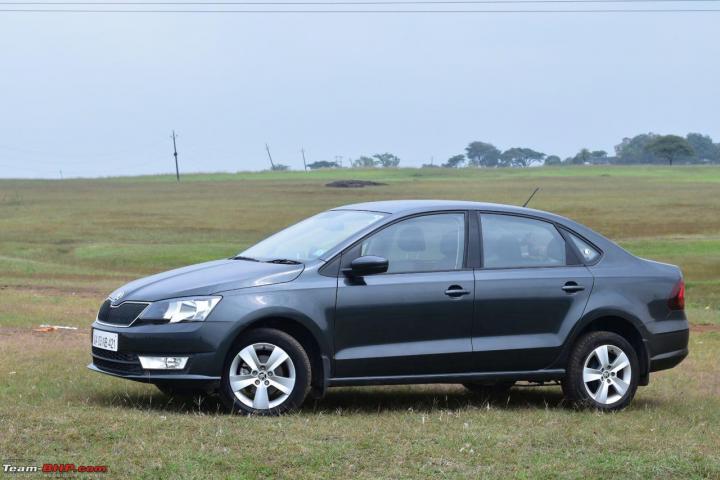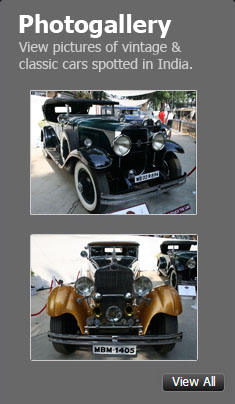News
Skoda fuel pumps failing: A common occurrence with bad fuel
The fact that the Skoda rep reached the conclusion over the phone so quickly, made it obvious they have been getting a lot of these complaints.
BHPian autohead115 recently shared this with other enthusiasts.
Hi Team-BHP
As we are all aware of the recent Kushaq's Fuel Pump issues from fuel adulteration, however, it looks like it's not just limited to Kushaq, but other Skoda cars as well.
So 2 weeks back I filled my car (2018 1.5 DSG Rapid) with a tank full of diesel from a nearby small Indian Oil bunk, which was a first for me as I always go to a company operated HP bunk but I was in a rush this time.
I went to Hyderabad from Vijayawada (300 KMS approx.) and after 2 weeks there I was returning yesterday, and when I was approx. 25 km from reaching Vijayawada, the car started to vibrate and the pickup started to fall off rapidly, so I pulled it to the side and noticed the car was vibrating badly in idle as well.
I turned it off and started again and the moment I slot the car in D, the car would vibrate a lot and won't go beyond 10 km/h.
I called the service executive that sold the car to me, and he instantly asked if the display was blinking a spring icon, which it did, and without confirming how he reached that conclusion he quickly said he will ask service execute to call and help. This made it obvious they are getting a lot of these a lot lately.
The service executive called and said this looks like a Fuel Injector failure due to fuel adulteration. He asked me to turn off the AC roll down all the windows and drive at 50-60KPH and come to the service centre as it was safe to do so. He confirmed he was getting a lot of these due to fuel adulteration lately when asked.
A quick review of the manual revealed that it was indeed safe to drive so I decided to do that.
However, they never asked if it was an automatic and kept saying I can drive it back while I kept telling them that my car won't go beyond 10 KPH, after a little back and forth and trying to call RSA, and a friend, it hit me maybe to try it in manual mode, and by changing the gears manually it started to pick speed and we reached home in an hour by driving at 50 KPH as advised (slotting into 4 at max).
I am yet to give it to the service station, I will do that tomorrow perhaps, but the key takeaways from this experience are:
- All Skoda cars are prone to fuel injector or fuel pump failures, the SA was saying it is Injector failure, while the recent news from Kushaq's said pump (I am not aware of the technical differences and if one is more expensive than the other? Please enlighten me so that I can see they don't overcharge me)
- They seem to be getting a lot of these, I got that from the way they dealt with the issue and also it looks like a lot of fuel pumps are now adulterating the fuel, I filled it from a small Indian Oil outlet, just FYI.
- If you have an Automatic, the car won't slot itself to the next gear coz of the degradation in performance as the RPM & Speed won't co-relate (just a guess, correct me if I am wrong) so you have to manually work the gears to make it move.
I will keep you guys posted with the workshop experience, but this is quite concerning, as it looks like with the massive price hike in fuel one has to deal with fuel adulteration issues as well
Here's what GTO had to say on the matter:
If cars from other brands are doing just well in terms of reliability and only you have a problem with "adulterated fuel", it's a problem with your cars and not the country. When other carmakers are able to find workarounds to a prevalent issue, why can't you? Skoda clearly hasn't done its "localization" properly for some of its engines.
My philosophy is simple = if you sell the car in India, for God's sake, make it work in Indian conditions!!! If you cannot, then you have failed. This includes engines, gearboxes (I'm looking at you, DSG), tyres, ground clearance etc.
Here's what BHPian vishy76 had to say on the matter:
I would say this failure of the injectors due to contaminated fuel is only partially true. There's another angle to it, one that VW/Skoda service advisors either don't know of or don't shed light on.
The Continental injectors used on the 1.5 and 1.6 TDIs are known to be a troublesome lot. The same company makes injectors for the Figo 1.4 TDCI and the Duster 110PS 1.5 K9K, both of which are infamous for the same sort of issue as well.
Coming to the reason for failure, it is a lesser-known fact that diesel is hygroscopic. The longer you have it sit in the fuel tank, the more it will be susceptible to absorbing moisture. In general, this isn't good for any injector irrespective of make, but these Continental injectors are extra sensitive to moisture. Thus, you will find a 4K km run Skoda Rapid which is 4-5 years old facing severe injector issues, but a 1.6L km driven Vento which is a daily will almost never have such an issue. Regular usage is key to not letting the diesel sit for long and absorb moisture.
Whose fault is it in the end? I would say the majority of it is VW/Skoda and their lack of depth in engineering certain components. If fuel contamination was such a huge issue, why aren't so many other turbo-diesel facing the same issue? At least a few of them? More importantly, why is the 2.0 TDI using Bosch injectors chugging along just fine? I own a Jetta and my dad isn't really considerate towards where he fills up diesel from. Even then, my injectors have not given me a single issue and I know of so many other 2.0 TDIs which have varying odo readings but have never had this problem. VW should have at least sorted this out on the 1.5 TDI, but it seems they will never mend their ways.
Here's what BHPian ninjatalli had to say on the matter:
Agree with Vishy76, my Vento TDI injectors went bust after a long period of sparingly/non-use (across ~2 years). Had to replace 3 out of 4 injectors on my own as the car was well outside warranty. The few owners I know with cars of similar timelines who have been regularly using their cars (now into 1L+ km) have not faced any such issues.
Here's what BHPian Altocumulus had to say on the matter:
The Continental Injectors are piezoelectric injectors while the Bosch ones are not. Same difference in Renault/ Nissan as well. The 110 PS has Continentals and 85 Ps are Bosch ones. Continental Piezoelectric injectors are way way more delicate and are Euro V injectors. They are also sensitive to electrical inputs, so any minimal extra load on the system like an amp or high power bulbs can also spoil the solenoids etc. Apart from that, there is also the humidity aspect. So it is always better to change the diesel filters in 7.5k to 8k km to ensure proper filtration and extend the life of the injectors.
Check out BHPian comments for more insights and information.
- Tags:
- Indian
- Skoda
- Member Content
- Rapid







.jpg)














